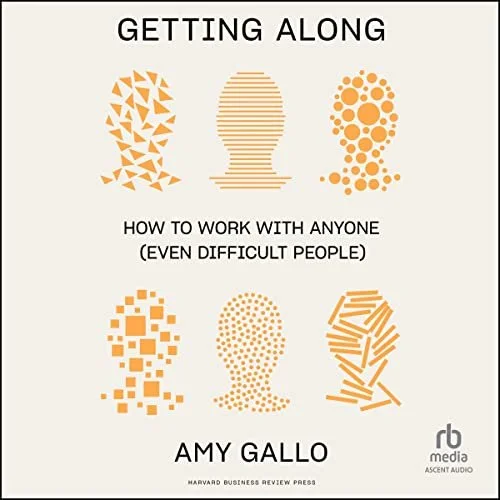
You Don’t Have to Do It Alone.
The sandwich generation is defined as people who are responsible for caring for aging parents while also raising children of their own. Following the 2022 Dive In Festival session: Strategies for the Sandwich Generation, this page is being provided as a resource for anyone who is in the sandwich generation and is looking for support or resources to help navigate this challenging stage of life.
Please note that the panelists from Dive In are not affiliated with the companies or organizations recommended as potential resources on this page. Beyond these potential resources, there is a vast universe of additional options available for support.
Watch the Replay
Employers
Many employers offer financial and legal support that can be used to help care for aging parents. Start by taking advantage of any programs offered by your employer.
Government Services
Many municipalities provide support through community centers and senior centers. Check with local, state, and federal social services for support for elderly parents and children.
Social Security
Investigate Social Security benefits for either your aging parents or to provide spousal support. If they’ve paid into it their whole life, they’ve earned the benefits!
Military & Veteran Support
VAs provide a number of resources for former members of the armed services as well as their spouses. Find out what support may be available if you or your spouse has served.
Financial & Legal Support
Community & Social Groups
Finding social support systems can improve quality of life for both you and your aging parents. This can mean anything from finding community centers that offer activities like language learning to social media support groups that connect you with others in similar situations.
Care Support for You & Your Parents
Parents Night Out
Seek out organizations that provide opportunities for you to get the ever-elusive “Parents’ Night Out.” Faith-based organizations, PTAs, gymnastics centers, martial arts centers, etc. often host events for kids so you can find time to hit your own reset button.
Home Security Services
Home security services such as Alarm.com are increasingly providing wellness check options that include security cameras, video calls, and motion sensors that make it easier to both connect with your aging parents and ensure their safety and well-being.
Home Health Care Support
Depending on your parents’ health care needs, services like HomeThrive.com or Homecare.com can be used to coordinate care and augment everything you’re already doing to make sure your parents are getting the quality care they deserve.
Community & Social Groups
Caring for aging parents can make it difficult to also find the time to provide your children the social outlets that are so crucial at a young age. Explore community activities at local libraries and social media support groups for parents in similar situations.
Care Support for Kids
Employer Resources
Many employers provide resources to help with child care and early childhood development. Make sure you’re taking advantage of any and all benefits afforded to you by your employer.
Know Your Special Needs Rights
Children with special needs must receive an Individualized Education Program according to federal law. Work with your child’s Planning and Placement Team to ensure that you are taking full advantage of all the resources at your disposal, including at the County and State levels. Engage with a Special Education Advocate or Special Education Attorney if needed.
Care Support
Services like Care.com provide everything from child care and tutoring to daycare and senior care. Many child care providers may also provide babysitting services for your kids. Since they already know them, this can be a win-win. Some schools may also provide a list of paraprofessionals and special education professionals who are willing to babysit outside of school.
Estate Planning
End-of-life discussions are never easy, but they’re a necessary part of planning for both your parents and yourself to ensure that your children are taken care of long-term. Considerations you should discuss with an accountant, lawyer, or qualified professional include:
Will and/or Trust
Living Will
Medical power of attorney/advance directive
Durable power of attorney
HIPAA permissions
Preparing for the Future
Long-Term Care Insurance
While it can feel expensive, long-term care insurance can be comparatively cheap when compared with the ongoing medical costs of long-term care. Evaluate whether long-term care insurance is a viable option for you as you weigh what living option(s) will make the most sense for your parents.
Living Options
One of the toughest decisions you’ll make in caring for your parents is where they live. There is no one-size-fits-all approach, as each situation is different, and the needs that drive where they live are often fluid. Each option has its pros and cons, but these are the main ones to consider:
Living at home
Living with you or a relative
Retirement community
Assisted living or Assisted living for dementia
Skilled nursing
Online Resources
It’s inevitable that your parents will have health scares that require medical support. In addition to telehealth options available through your insurance provider, explore whether services like IncludedHealth.com could be right for you.
Medical Support
Federal & State Disability
The federal government and many states offer disability services that can ease the time and financial cost of caring for aging parents. Explore resources on the USA.gov website or the state in which you or your parents reside.
Medicare
Medicare is a federally run programs that provide health care insurance, services, and prescription drug coverage for people over the age of 65. To learn more about Medicare and to check eligibility, please visit the Health and Human Services website.
Medicaid
According to HHS, “Medicaid provides health coverage for some low-income people, families and children, pregnant women, the elderly, and people with disabilities.” To learn more about Medicaid, please visit the Health and Human Services website.
Glossaries of Care Terms
Understanding the alphabet soup of acronyms and terminology surrounding medical care for seniors can be challenging in its own right. Fortunately, there are glossaries of commonly used terms available from AARP and The Senior List.
Putting Yourself First, Even When You Have to Be Last
When you’re smack dab in the middle of the sandwich generation with non-stop demands on your time and attention, there’s no doubt that it’s difficult to find time for yourself. The challenge here is this: if you don’t take time to nurture your own mind, body, and soul, there’s no way for you to be at your best for those who rely on you so much. These are just a few of the approaches we can recommend exploring to ensure you take time to nurture yourself, just as you do your parents and children:
Taking Care of Yourself
Journaling
Recommended Reading
Panelists from Dive In











